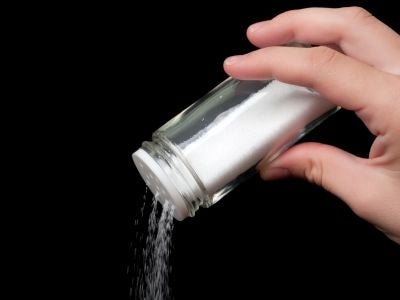New York's Mayor Bloomberg launched an attack on salt earlier this year that has resulted in numerous multinational food manufacturers agreeing to lower the amount of salt in products ranging from ketchup to rice on April 26. So how much is too much in your shaker, kitchen and on your plate?
"Sodium is a major cause of high blood pressure, which in turn can lead to heart attack and stroke,'' said Bloomberg.
According to the MayoClinic.com, a respected health information site affiliated with the Minnesota, US-based Mayo Clinic and its health experts, some salt is necessary as it "helps maintain the right balance of fluids in your body, helps transmit nerve impulses, and influences the contraction and relaxation of muscles."
Considering the recommended amount of daily salt intake should be in the range of 1,500 - 2,400 (that is, less than one teaspoon of table salt) depending on age and health conditions, it might be surprising to learn that "about 11 percent of the sodium in the average U.S. diet comes from adding salt or other sodium-containing condiments to foods while cooking or eating. But the majority of the sodium - 77 percent - comes from eating prepared or processed foods that contain the mineral. So even though you may limit the amount of salt you add to food, the food itself may already be high in sodium."
Apparently 12 percent is attained by natural sources and the rest can be controlled. If you love extra ketchup it is probably good news to know that Heinz has agreed to decrease its sodium levels but, nonetheless, if you want to cut back on salt here are some simple ways:
- Avoid processed and prepared foods and condiments, especially those that contain: monosodium glutamate (MSG), baking soda, baking powder, disodium phosphate, sodium alginate and sodium nitrate or nitrite.
- Increase fresh food intake, in addition to lots of fresh fruits and vegetables, look for meats that are "fresh and frozen... that haven't been injected with sodium-containing solution."
- Add herbs and spices to enhance flavor in your dishes; limiting salt can open up a new world filled with zests, seeds, curries, stems and other tasty options.
Subscribe to Independent Premium to bookmark this article
Want to bookmark your favourite articles and stories to read or reference later? Start your Independent Premium subscription today.


Join our commenting forum
Join thought-provoking conversations, follow other Independent readers and see their replies